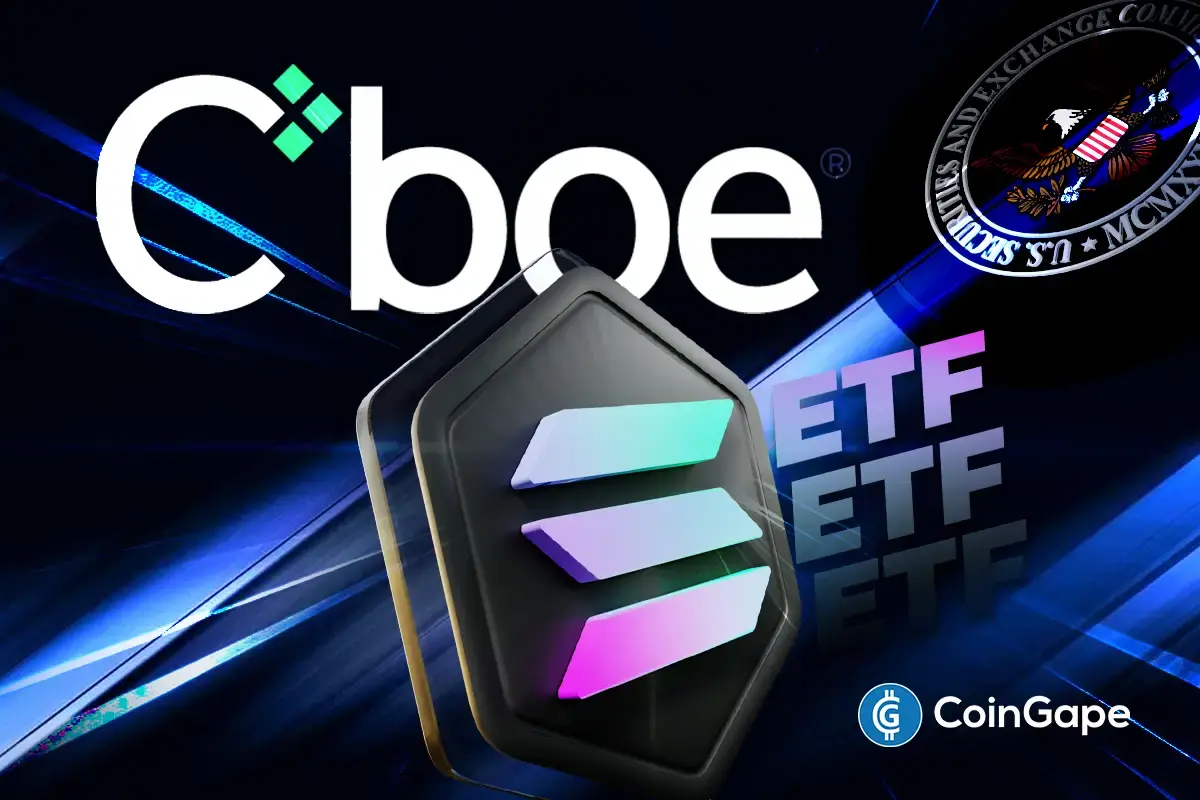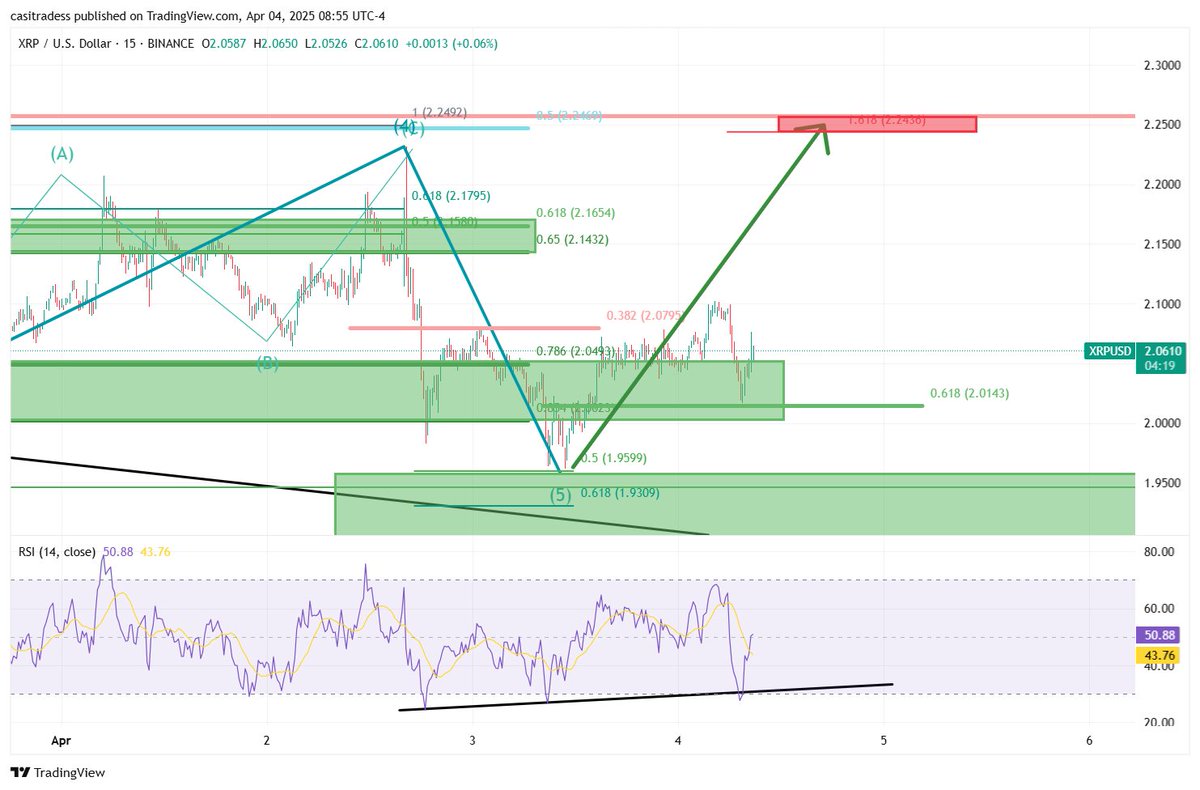Regulation
Is China Crypto Ban Over As Bybit Resumes Registration?

Bybit, the third largest offshore cryptocurrency exchange, has resumed its user sign-up and identification verification in Mainland China where it had previously ceased operations.
This comes even as Bybit continues to note that it does not operate in some jurisdictions such as Mainland China on its website. This creates a paradox, which may indicate the change in the approach of Bybit concerning regulation or strategy.
Bybit Reopens to Chinese Users
Although Bybit has been banned in China for quite some time now to the extent that Chinese residents cannot register and use the platform, the company has recently added registration features for this population.
This decision comes as a surprise since the exchange has been previously in compliance with Chinese laws that prohibit cryptocurrency trading and activities.
Exclusive: The third largest offshore exchange Bybit suddenly opened up registration and authentication for users in China. Bybit has long strictly prohibited the registration and use of all Chinese users. The management team has been very cautious about this. pic.twitter.com/m71BdT4KAq
— Wu Blockchain (@WuBlockchain) June 5, 2024
The exchange’s own certification page has Mainland China among the jurisdictions where its services are not available along with the United States, Singapore and some parts of Canada among others. This conflicting information has not been clarified by Bybit’s management in their subsequent public statements.
Implications for Cryptocurrency Regulations in China
This change in policy by Bybit could be an indication of a slight change in China’s approach towards cryptocurrency but this remains speculative until there is official communication from the relevant authorities.
Until now, China has been quite standoffish when it comes to cryptocurrencies, stating that digital currencies pose a threat to fraud, money laundering, and economic fluctuations.
Bybit withdrew its application for a Hong Kong license earlier. Hong Kong does not allow any entity to develop business in mainland China. This also means that Bybit may give up applying for a Hong Kong license. Currently, Bybit is headquartered in Dubai.
— Wu Blockchain (@WuBlockchain) June 5, 2024
This may present a major shift in the ways of regulation, possibly in coordination with other changes that are happening in the nation’s financial practices and technological advancements. Nonetheless, the extent of the impact of Bybit’s decision will be determined by the future actions of regulators and the exchange’s capacity to maneuver through the legal landscape in China.
Bybit’s Global Operations and Regulatory Challenges
Currently, Bybit is now operating in different regions with different regulatory frameworks. Besides China, the exchange has also pulled out its application for a license in Hong Kong where new laws have put into effect many strict operational conditions for cryptocurrency firms. The city’s efforts towards formalization of the virtual asset landscape has been met with divergent opinions from participants with some halting operations due to the costs associated with regulation.
Furthermore, Bybit has had issues with the law in other countries such as France, where the Autorité des Marchés Financiers (AMF) accused the exchange of operating without the necessary license. This raises the question of the legal environment that is often fragmented and challenging for international cryptocurrency exchange platforms as they offer their services across various jurisdictions.
However, to meet these challenges and harness market potential, Bybit has expanded its offerings, including the Bitcoin Wealth Management Fund which attracted quick buying interest of over 100 BTC during its initial offering within 7 hours.
Read Also: Celsius Price Analysis As Trading Volume Accelerates 500% To $121M, CEL Explodes 72%
The presented content may include the personal opinion of the author and is subject to market condition. Do your market research before investing in cryptocurrencies. The author or the publication does not hold any responsibility for your personal financial loss.
Regulation
Pakistan’s Crypto Council Appoints Binance Founder Changpeng Zhao As Strategic Advisor

Binance founder Changpeng Zhao, has been appointed as a Strategic Advisor to Pakistan’s Crypto Council. This appointment marks a new phase for Pakistan’s efforts to enhance its position in the global crypto and blockchain sectors. Zhao, known for his influence in the Web3 space, is expected to guide the country’s crypto policies and infrastructure.
Binance Founder Changpeng Zhao As Pakistan Crypto Strategic Advisor
The official announcement came during a meeting between Binance founder Changpeng Zhao and the Pakistan Crypto Council (PCC), which was chaired by Pakistan’s Finance Minister Senator Muhammad Aurangzeb.
As part of his role, Binance founder Changpeng Zhao will provide expertise on various aspects of the crypto ecosystem, including regulation, infrastructure development, and the promotion of adoption. He will also assist in building a regulatory framework that ensures compliance while encouraging innovation.
The Finance Minister of Pakistan, Senator Muhammad Aurangzeb, expressed enthusiasm about Zhao’s appointment, stating,
“With CZ onboard, we are accelerating our vision to make Pakistan a regional powerhouse for Web3, digital finance, and blockchain-driven growth.”
This Is A Developing News, Please Check Back For More
Disclaimer: The presented content may include the personal opinion of the author and is subject to market condition. Do your market research before investing in cryptocurrencies. The author or the publication does not hold any responsibility for your personal financial loss.
Regulation
Ripple Whales Move $429 Million, What Is Going On?

Ripple whales have been highly active in recent hours, transferring large amounts of XRP tokens between unknown wallets. In total, 267,857,140 XRP, which, at the time of writing, was approximately $572,238,240, was transferred. These large XRP whales are believed to have a connection to Ripple’s ongoing legal battle and its on-demand liquidity (ODL) sales.
These massive transactions were potentially triggered by the decision of the SEC to lift the injunction against institutional sales for Ripple recently. As a result, Ripple can now proceed with its ODL business, likely contributing to the recent surge in large-scale XRP transfers.
Ripple Whales Move $572 Million
Whale Alert, has recently reported a flurry of XRP transfers. Four transactions were executed within a short span, and every swap was equal to 66,964,285 XRP, which amounts to about $143 million. These huge transactions have elicited quite a stir among the members of the crypto space regarding their size and the frequency.
While the reason behind the transfers is still uncertain, a large volume of XRP moving to unknown wallets could be tied to Ripple’s operations. Given that these moves occurred after the SEC has decided to remove the injunction on Ripple’s institutional sales, a correlation between Ripple’s liquidity management and institutional sales has emerged.
Such large movements have also attracted the attention of the market observers to think that Ripple may be gearing up for expansion of its ’on-demand liquidity’ solution. This could explain why this wave of whale is being observed today based on the firm’s capacity to continue with these institutional sales.
Ripple Legal Victory and Influence on XRP Transactions
Ripple’s legal situation with the U.S. Securities and Exchange Commission (SEC) has been a key factor influencing the company’s operations. Recently, as part of Ripple’s decision to drop its cross appeal against the SEC, the Commission agreed to remove the injunction that had previously restricted Ripple from conducting institutional sales of XRP. This decision paves the way for Ripple to resume its on-demand liquidity services, a core part of its business.
This movement should help Ripple expand the availability of liquidity solutions and its penetration in the international markets. The absence of the injunction will allow Ripple to transact with more XRP with institutional clients, which may be fueling the whale activities.
Subsequently, since Ripple’s ODL platform focuses on large XRP transactions, whales are likely to be engaged in this kind of activity as they provide liquidity. At the same time, Coinbase Derivatives has submitted new applications with the U.S. Commodity Futures Trading Commission (CFTC) to self-certify XRP futures contracts.
XRP Price Trend Amid Whale Movements
XRP’s recent market behavior also reflects these developments, with the cryptocurrency showing signs of strength. According to crypto analyst Casi Trades, after reclaiming the $2.05 support level, XRP price trend has set its sights on the next key resistance level at $2.24.
This level is particularly significant, as it aligns with both the macro and micro wave structures of XRP’s price movements.
Experts are keeping a close eye on XRP’s price action, with some predicting that the currency could break out of its current resistance levels and potentially reach new highs. The next levels to watch include $2.70, $3.05, and eventually $3.80, which could mark a new all-time high for XRP price.
Disclaimer: The presented content may include the personal opinion of the author and is subject to market condition. Do your market research before investing in cryptocurrencies. The author or the publication does not hold any responsibility for your personal financial loss.
Regulation
US SEC Acknowledges Fidelity’s Filing for Solana ETF

The U.S. Securities and Exchange Commission (SEC) has formally acknowledged the filing for Fidelity’s spot Solana (SOL) Exchange-Traded Fund (ETF).
This marks a key development in the financial industry, as Fidelity seeks to list its Solana ETF on the Cboe BZX Exchange. The acknowledgment comes after Fidelity submitted a proposed rule change, paving the way for the potential approval of the product.
Fidelity’s Spot Solana ETF Proposal
The SEC’s acknowledgment follows Fidelity’s filing to list and trade shares of the Fidelity Solana Fund under the Cboe BZX Exchange. The proposed rule change, initially submitted on March 25, was later amended on April 1, 2025, to clarify certain points and add additional details.
The amended proposal aims to list the Solana ETF under BZX Rule, which pertains to commodity-based trust shares. According to the Cboe BZX Exchange, Fidelity plans to register the shares with the SEC through a registration statement on Form S-1.
Fidelity’s experience with crypto ETFs, having launched the Fidelity Wise Origin Bitcoin Fund (FBTC) and the Fidelity Ethereum Fund (FETH), has prepared it for this new initiative. FBTC has drawn substantial interest, accumulating nearly $17 billion in assets, while FETH currently manages around $975 million.
This Is A Developing News, Please Check Back For More
Disclaimer: The presented content may include the personal opinion of the author and is subject to market condition. Do your market research before investing in cryptocurrencies. The author or the publication does not hold any responsibility for your personal financial loss.
-

 Market20 hours ago
Market20 hours agoEthereum Price Tanks Hard—Can It Survive the $1,500 Test?
-

 Market24 hours ago
Market24 hours agoSolana (SOL) Freefall—Can It Hold Above The $100 Danger Zone?
-

 Bitcoin21 hours ago
Bitcoin21 hours ago$1 Billion in Liquidations Over the Weekend
-

 Market18 hours ago
Market18 hours agoBitcoin Price Crashes Hard—Is The Selloff Just Getting Started?
-

 Market13 hours ago
Market13 hours agoIs $0.415 the Key to Further Gains?
-

 Market21 hours ago
Market21 hours agoSolana (SOL) Price Falls Below $100, Crashes To 14-Month Low
-

 Bitcoin19 hours ago
Bitcoin19 hours agoWill 2025’s Crypto Market Mirror 2020’s Rebound? Analysts Predict
-

 Market19 hours ago
Market19 hours agoWill ADA Drop to $0.44?


























✓ Share: